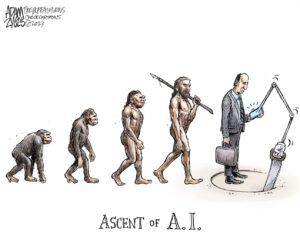Twitter Says ‘No’ to Helping Build Muslim Registry
The Intercept reached out to nine tech companies, including Facebook, to see where they stand on helping the Trump administration track Muslims.
By Nadia Prupis / Common Dreams

Andrew Mager / flickr / cc
Out of nine technology companies, from Facebook to Booz Allen Hamilton, only Twitter confirmed it would refuse to help the Trump administration build a “Muslim registry,” The Intercept reported on Friday.
The outlet contacted—or attempted to contact—the companies over the course of two weeks, asking if they would contract out their services to help create the hypothetical database, which President-elect Donald Trump’s national security adviser Kris Kobach has said would track immigrants entering the U.S from Muslim nations.
Not all of the companies responded, but only one unequivocally said no. Reporter Sam Biddle’s final tally is:
Facebook: No answer.
Twitter: “No,” and a link to this blog post, which states as company policy a prohibition against the use, by outside developers, of “Twitter data for surveillance purposes. Period.”
Microsoft: “We’re not going to talk about hypotheticals at this point,” and a link to a company blog post that states that “we’re committed to promoting not just diversity among all the men and women who work here, but … inclusive culture” and that “it will remain important for those in government and the tech sector to continue to work together to strike a balance that protects privacy and public safety in what remains a dangerous time.”
Google: No answer.
Apple: No answer.
IBM: No answer.
Booz Allen Hamilton: Declined to comment.
SRA International: No answer.
CGI: No answer.
Although IBM did not respond to the request, the company’s CEO Ginni Rometty wrote a personal letter to President-elect Donald Trump after his win, congratulating him and offering her company’s services. Notably, IBM has a history of assisting fascist regimes, having “famously helped Nazi Germany computerize the Holocaust,” Biddle writes.
“Trump’s anti-civil liberty agenda, half-baked and vague as it is, would largely be an engineering project, one that would almost certainly rely on some help from the private sector,” he continues. “It may be asking too much to demand that companies that have long contracted with the federal government stop doing so altogether; indeed, this would probably cause as much harm and disruption to good public projects as it would help stop the sinister ones.”
Ben Wizner, director of ACLU’s Speech, Privacy, and Technology Project, told The Intercept, “Any technology company should resist a government request for assistance that targets a customer on the basis of race, religion, or national origin.”
Nadia Prupis is a staff writer at Common Dreams.
Your support matters…Independent journalism is under threat and overshadowed by heavily funded mainstream media.
You can help level the playing field. Become a member.
Your tax-deductible contribution keeps us digging beneath the headlines to give you thought-provoking, investigative reporting and analysis that unearths what's really happening- without compromise.
Give today to support our courageous, independent journalists.









You need to be a supporter to comment.
There are currently no responses to this article.
Be the first to respond.